Fleurs du Mal Magazine


Or see the index
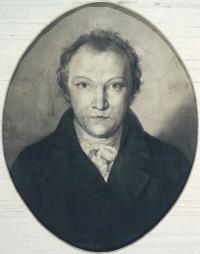
The Little Vagabond
Dear mother, dear mother, the Church is cold;
But the Alehouse is healthy, and pleasant, and warm.
Besides, I can tell where I am used well;
The poor parsons with wind like a blown bladder swell.
But, if at the Church they would give us some ale,
And a pleasant fire our souls to regale,
We’d sing and we’d pray all the livelong day,
Nor ever once wish from the Church to stray.
Then the Parson might preach, and drink, and sing,
And we’d be as happy as birds in the spring;
And modest Dame Lurch, who is always at church,
Would not have bandy children, nor fasting, nor birch.
And God, like a father, rejoicing to see
His children as pleasant and happy as he,
Would have no more quarrel with the Devil or the barrel,
But kiss him, and give him both drink and apparel.
William Blake
(1757 – 1827)
The Little Vagabond
• fleursdumal.nl magazine
More in: Archive A-B, Archive A-B, Blake, William, Tales of Mystery & Imagination
Winner of the Prairie Schooner Book Prize in Poetry, Some Are Always Hungry chronicles a family’s wartime survival, immigration, and heirloom trauma through the lens of food, or the lack thereof.
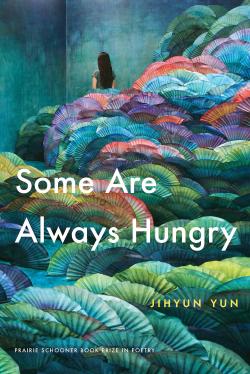 Through the vehicle of recipe, butchery, and dinner table poems, the collection negotiates the myriad ways diasporic communities comfort and name themselves in other nations, as well as the ways cuisine is inextricably linked to occupation, transmission, and survival.
Through the vehicle of recipe, butchery, and dinner table poems, the collection negotiates the myriad ways diasporic communities comfort and name themselves in other nations, as well as the ways cuisine is inextricably linked to occupation, transmission, and survival.
Dwelling on the personal as much as the historical, Some Are Always Hungry traces the lineage of the speaker’s place in history and diaspora through mythmaking and cooking, which is to say, conjuring.
Jihyun Yun is a Korean American poet from California who now lives in Ann Arbor, Michigan. A Fulbright research grant recipient, she has received degrees from the University of California–Davis and New York University. Her work has appeared in Narrative Magazine, Poetry Northwest, Adroit Journal, and other publications.
Jihyun Yun
Some Are Always Hungry
Prairie Schooner Book Prize in Poetry
Kwame Dawes, series editor
University of nebraskapress
Poetry
English
September 2020
Paperback
90 pages
ISBN978-1-4962-2218-3
$17.95
# New books
Jihyun Yun
Some Are Always Hungry
• fleursdumal.nl magazine
More in: - Book News, Archive Y-Z, Archive Y-Z, TRANSLATION ARCHIVE
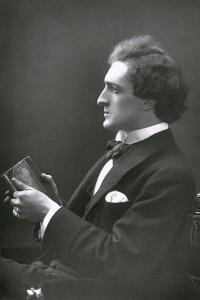
“Face in the Tomb
that Lies so Still”
Face in the tomb, that lies so still,
May I draw near,
And watch your sleep and love you,
Without word or tear.
You smile, your eyelids flicker;
Shall I tell
How the world goes that lost you?
Shall I tell?
Ah! love, lift not your eyelids;
‘Tis the same
Old story that we laughed at,–
Still the same.
We knew it, you and I,
We knew it all:
Still is the small the great,
The great the small;
Still the cold lie quenches
The flaming truth,
And still embattled age
Wars against youth.
Yet I believe still in the ever-living God
That fills your grave with perfume,
Writing your name in violets across the sod,
Shielding your holy face from hail and snow;
And, though the withered stay, the lovely go,
No transitory wrong or wrath of things
Shatters the faith–that each slow minute brings
That meadow nearer to us where your feet
Shall flicker near me like white butterflies–
That meadow where immortal lovers meet,
Gazing for ever in immortal eyes.
Richard Le Gallienne
(1866 – 1947)
“Face in the Tomb that Lies so Still”
From: The lonely Dancer and other Poems, 1913
• fleursdumal.nl magazine
More in: Archive G-H, Archive G-H, Galerie des Morts, Gallienne, Richard Le
Guillotine traverses desert landscapes cut through by migrants, the grief of loss, betrayal’s lingering scars, the border itself—great distances in which violence and yearning find roots.
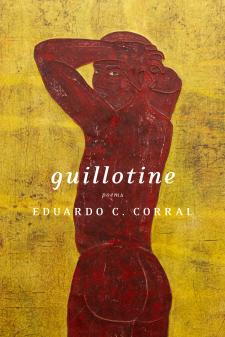 Through the voices of undocumented immigrants, border patrol agents, and scorned lovers, award-winning poet Eduardo C. Corral writes dramatic portraits of contradiction, survival, and a deeply human, relentless interiority. With extraordinary lyric imagination, these poems wonder about being unwanted or renounced. What do we do with unrequited love? Is it with or without it that we would waste away?
Through the voices of undocumented immigrants, border patrol agents, and scorned lovers, award-winning poet Eduardo C. Corral writes dramatic portraits of contradiction, survival, and a deeply human, relentless interiority. With extraordinary lyric imagination, these poems wonder about being unwanted or renounced. What do we do with unrequited love? Is it with or without it that we would waste away?
In the sequence “Testaments Scratched into a Water Station Barrel,” with Corral’s seamless integration of Spanish and English, poems curve around the surfaces upon which they are written, overlapping like graffiti left by those who may or may not have survived crossing the border. A harrowing second collection, Guillotine solidifies Corral’s place in the expanding ecosystem of American poetry.
The astonishing second collection by the author of Slow Lightning, winner of the Yale Younger Poets Prize
Eduardo C. Corral is the author of Slow Lightning, winner of the Yale Younger Poets Prize. He was a founding fellow of the CantoMundo Writers Conference, and recipient of a Whiting Award. He teaches at North Carolina State University.
Guillotine.
Poems
Eduardo C. Corral
ISBN: 978-1-64445-030-7
Format: Paperback
Publication Date: 8/4/20
Subject: Poetry
Pages 72
Graywolf Press, Minneapolis, Minnesota
Price $16.00
# new poetry
Guillotine.
Poems by
Eduardo C. Corral
• fleursdumal.nl magazine
More in: #Editors Choice Archiv, - Book News, - Bookstores, Archive C-D, PRESS & PUBLISHING
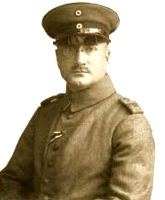
Der Marsch
Rum und Trum
Rum und Trum
“Potz Kerle! hebt die Beine!”
Rum und Trum
Rum und Trum
“Verfluchte Sonne!” … Schweine!
Flüt und Tü
Flüt und Tü
“Der Brand! … die heiße Kehle!”
Flüt und Tü
Flüt und Tü
“Wie lang noch das Gequäle?!”
Träterä
Träterä
“Ei schaut! bläht dort das Röckchen!”
Träterä
Träterä
“Verteufelt steht das Böckchen!”
Rum und Trum
Rumlidibum
“Wie blinkt das Dörfchen heiter!”
Flüt und Tü
Träterä
Und “weiter! weiter! weiter!”
August Stramm
(1874-1915)
Der Marsch
• fleursdumal.nl magazine
More in: Archive S-T, Archive S-T, Stramm, August, Stramm, August, WAR & PEACE
Beauty abounds in Jericho Brown’s Pulitzer Prize-winning poetry collection, despite and inside of the evil that pollutes the everyday.
 A National Book Award finalist, The Tradition questions why and how we’ve become accustomed to terror: in the bedroom, the classroom, the workplace, and the movie theater. From mass shootings to rape to the murder of unarmed people by police, Brown interrupts complacency by locating each emergency in the garden of the body, where living things grow and wither—or survive.
A National Book Award finalist, The Tradition questions why and how we’ve become accustomed to terror: in the bedroom, the classroom, the workplace, and the movie theater. From mass shootings to rape to the murder of unarmed people by police, Brown interrupts complacency by locating each emergency in the garden of the body, where living things grow and wither—or survive.
In the urgency born of real danger, Brown’s work is at its most innovative. His invention of the duplex—a combination of the sonnet, the ghazal, and the blues—is an all-out exhibition of formal skill, and his lyrics move through elegy and memory with a breathless cadence. Jericho Brown is a poet of eros: here he wields this power as never before, touching the very heart of our cultural crisis.
Jericho Brown is a Pulitzer Prize-winning poet and the recipient of fellowships from the Guggenheim Foundation, the Radcliffe Institute for Advanced Study at Harvard, and the National Endowment for the Arts, and he is the winner of a Whiting Award. Brown’s first book, Please (New Issues, 2008), won the American Book Award. His second book, The New Testament (Copper Canyon, 2014), won the Anisfield-Wolf Book Award. His third collection is The Tradition (Copper Canyon, 2019)—winner of the 2020 Pulitzer Prize in Poetry and a finalist for the 2019 National Book Award. His poems have appeared in Bennington Review, BuzzFeed, Fence, jubilat, The New Republic, The New York Times, The New Yorker, The Paris Review, TIME, and several volumes of The Best American Poetry. He is an associate professor and the director of the Creative Writing Program at Emory University.
The Tradition
poems by Jericho Brown
(Winner of the 2020 Pulitzer Prize in Poetry)
Format: Paperback
Paperback
110 pages
ISBN-10 : 1556594860
ISBN-13 : 978-1556594861
Publisher : Copper Canyon Press
2 April 2019
Product Dimensions : 22.35 x 14.99 x 1.27 cm
Language: English
$17.00 list price
Jericho Brown
Awards and Honors
Pulitzer Prize in Poetry, 2020
Whiting Writers Award
American Book Award
National Endowment for the Arts Literature Fellowship
Radcliffe Institute at Harvard University Fellowship
Bread Loaf Writers’ Conference Fellowship
Krakow Poetry Seminar Fellowship
John Simon Guggenheim Memorial Foundation Fellowship
Lambda Literary Trustee Award, 2020
• fleursdumal.nl magazine
More in: #Editors Choice Archiv, - Book News, Archive A-B, Archive A-B, Awards & Prizes
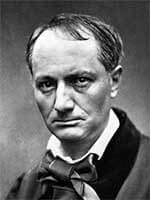
Les Yeux de Berthe
Vous pouvez mépriser les yeux les plus célèbres,
Beaux yeux de mon enfant, par où filtre et s’enfuit
Je ne sais quoi de bon, de doux comme la Nuit!
Beaux yeux, versez sur moi vos charmantes ténèbres!
Grands yeux de mon enfant, arcanes adorés,
Vous ressemblez beaucoup à ces grottes magiques
Où, derrière l’amas des ombres léthargiques,
Scintillent vaguement des trésors ignorés!
Mon enfant a des yeux obscurs, profonds et vastes,
Comme toi, Nuit immense, éclairés comme toi!
Leurs feux sont ces pensers d’Amour, mêlés de Foi,
Qui pétillent au fond, voluptueux ou chastes.
Charles Baudelaire
(1821-1867)
Les Yeux de Berthe
(poème)
• fleursdumal.nl magazine
More in: Archive A-B, Archive A-B, Baudelaire, Baudelaire, Charles
How do you begin a future that has essentially already ended, separated from your home, your language and yourself by a stretch of water? Kurt Schwitters is forty-nine years old when the Nazis force him to flee Germany. His success, work, possessions, parents, and wife Helma stay behind – and art gives way to the art of survival.
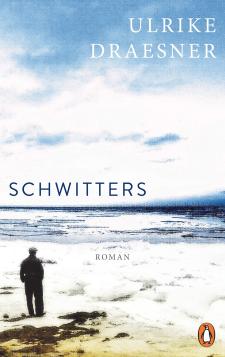 Schwitters’s second life in a foreign language begins in Norway, then takes him to London and finally to the Lake District. Wantee, the new woman at his side, keeps him on course and his head above water, even when the word artist falls silent. With his Merzbau installation, Schwitters has discovered a new way to capture sky and serenity, shimmering meadows and transparent air. He is ludicrously disciplined, to the point of exhaustion. As we watch him at work, we learn that art doesn’t interpret the world: It translates it into forms that move us.
Schwitters’s second life in a foreign language begins in Norway, then takes him to London and finally to the Lake District. Wantee, the new woman at his side, keeps him on course and his head above water, even when the word artist falls silent. With his Merzbau installation, Schwitters has discovered a new way to capture sky and serenity, shimmering meadows and transparent air. He is ludicrously disciplined, to the point of exhaustion. As we watch him at work, we learn that art doesn’t interpret the world: It translates it into forms that move us.
In Schwitters in the Lakes, Ulrike Draesner follows the writer and artist Kurt Schwitters into exile, giving voice to Kurt, his wife, his son and his lover. Through a virtuoso blend of fact and fiction, she has created a panorama of a time when the struggle for freedom and art was renewed in the face of a world on fire.
A profound yet witty novel about the power of art in dark times.
Ulrike Draesner, born in 1962, is a lyricist, novelist and essayist. She studied English, German and philosophy and has worked as an academic, translator and editor. She has published poetry collections, short stories, and novels, and held posts at several renowned universities such as the Swiss Literature Institute in Biel. She was a Visiting Fellow at New College, Oxford and at the Oxford Research Centre in the Humanities and is professor for German Literature and Creative Writing at the Deutsche Literaturinstitut Leipzig. Ulrike Draesner has received numerous awards.
Ulrike Draesner
Schwitters in the Lakes
Hardcover with jacket
480 pages
13.5 x 21.5 cm
Publishing House: Penguin
ISBN: 978-3-328-60126-5
Date of publication: August 24, 2020
€ 25.00
# new novel
Schwitters in the Lakes
Kurt Schwitters (1887 – 1948)
• fleursdumal.nl magazine
More in: - Book News, Archive C-D, Archive S-T, DADA, Kurt Schwitters, Kurt Schwitters, Schwitters, Kurt
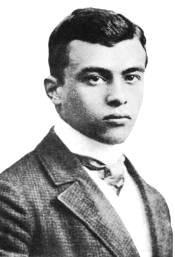
Varieté
I
Loge
Ein Walzer rumpelt; geile Geigen kreischen;
Die Luft ist weiss vom Dunst der Zigaretten;
Es riecht nach Moschus, Schminke, Wein, nach fetten
Indianern und entblössten Weiberfleischen.
Ah! Schwimmen in der dicken Luft die vielen
Dämlichen Köpfe, die ins Helle glotzen?
Drei Weiber lässt man auf der Bühne spielen,
Die süsslich mit gemeinen Gesten protzen.
II
Der Athlet
Und der Athlet tritt auf und staunen kannst de,
Wie er ein Brett mit seiner Faust zerhaut.
Er geht einher mit ungeheurem Wanste
Und feistem Arm und Nacken, schweissbetaut.
Und kurze Hosen schlottern um die Beinchen,
Die sind zu dünnen Stöckchen deformiert.
Prunkende Seide seine Füsschen ziert.
Ach! sind die niedlich! Wie zwei rosa Schweinchen.
III
Der Humorist
Ein alter Mann in einem neuen Fracke
Plärrt jetzt seine Liebesabenteuer.
Und besonders nach gewissen neuern
Abenteuern,
Spricht er, gleiche er dem Wracke,
Das auf den Wellen wackle ohne Rast,
Der Winds-„Braut“ preisgegeben, ohne Steuer,
Sogar mit halb verfaultem „Mast“.
IV
Tanz
Ein kleines Mädchen mit gebrannten Löckchen
In einem Hemd ganz himmelblau –
Die blossen Beine trippeln ohne Söckchen.
Sie singt: „Ach, tu mir nichts zuleide!
Ach Du! Heut werd ich Deine Frau.“
Dann tanzt sie gierig und mit Chic
Zu einer holprigen Musik.
Und durch die Wirbel blauer Seide
Siehst de den jungen Leib genau.
V
Die Inderin
Sie hebt den dünnen Arm; da duckt zum Sprunge
Das dunkle Pantherpaar, durch sieben Reifen
Fährt es hindurch mit elegantem Schwunge.
Und ihre bösen starken Pranken streifen
(Wenn sie verwirrt zurück zum Käfig taumeln)
Die Perlenschnüre, die … von einem lila Gurte …
Um ihrer nackten Herrin Hüften baumeln.
VI
Ballet
Neger schlenkern aufrecht mit den Beinen,
Auf dem Rumpfe gelbliche Trikots.
Und dazwischen tanzen unsere frechen kleinen
Weiber blond und nackend; ganz famos
Angezogen:
Nur mit goldenen Stöckelschuhn,
Mit denen sie die fauchenden Athleten
Behende in die dicken Nasen treten.
VII
Die Soubrette
Ein Weibsbild kommt als Jägersmann
Und schiesst auf ihrer Flinten.
Und sieht sich einen Vogel an
Und zeigt sich uns von hinten.
Ihr Hintern biegt sich unerhört
Auf Beinen stramm wie Säulen.
Sie singt: „Mich hat die Lieb verstört
Juchhei! im grünen Walde …“
VIII
Die Tänzerin
Wie mich die zärtlichen Gelenke rühren,
Dein magrer Nacken, Deiner Kniee Biegen!
Ich zürne fast. Werde ich Dir erliegen?
Wirst Du zu jenem Traum zurück mich führen,
Den ich als Knabe liebend mir erbaute
Aus süssen Versen und dem Spiel der schönen
Schauspielerinnen, linden Geigentönen
Und Idealen, die ich klaute?
Ach! keine fand ich jenem Traume gleich,
Ich musste weinend Weib um Weib vermeiden,
Ich war verbannt zu unermessnen Leiden,
Und hasse jenen Traum. Ich spähe bleich,
Und sorgsam späh ich wie Dein Leib sich wende,
Nach jeder Fehle, die im Tanz du zeigst,
Ich bin dir dankbar, da du doch am Ende
Mit einem blöden Lächeln dich verneigst.
IX
Lebendes Bild
Zwei Skribenten mit zu großer Neese
Sitzen vor der Wand aus gelbem Taft;
Und sie sorgen sich um die Synthese
Der Kultur und um die Jungfernschaft.
Denn der Teufel schreitet durch die Mitte
Und ist gänzlich ohne innern Halt.
Feurig federn seine langen Schritte,
Schwarz und wechselnd ist er von Gestalt.
Und er wedelt mit dem schlangenhaften Schweife;
Denn er hat mit einer Maus gehurt,
Und im Vordergrund raucht schon die Pfeife
Seine neugeborne Mißgeburt.
Jakob van Hoddis
(1887 – 1942)
Varieté (Gedicht) 1911
• fleursdumal.nl magazine
More in: Archive G-H, Archive G-H, Hoddis, Jakob van
Going Down Grand, the first full-length anthology of Grand Canyon poetry, gathers the voices of cowboys, explorers, river-runners, hikers, artists, geologists, rangers, and others whose words bear witness to this complex and magnificent place.
 For readers on the river, the trails, the rim, or beyond, the poems on these pages will make fine canyon company.
For readers on the river, the trails, the rim, or beyond, the poems on these pages will make fine canyon company.
GOING DOWN GRAND, the first full length anthology of Grand Canyon poems, gathers the voices and thoughts of explorers, cowboys, river-runners, hikers, artists, geologists, rangers, and others whose words reveal and bear witness to this complex and magnificent place. For readers on the river, the trails, the rim, or beyond, the poems on these pages will make fine canyon company.
Co-editor Rick Kempa has been hiking in and writing about the Grand Canyon since 1974. He is also editor of the anthology ON FOOT: Grand Canyon Backpacking Stories (Vishnu Temple Press, 2014) and has authored two books of poems, Keeping the Quiet and Ten Thousand Voices.
Rick Kempa (M.F.A. U of Arizona) teaches writing and philosophy at Western Wyoming College. His work has appeared in Puerto del Sol, High Plains Literary Review, Teaching English in the Two-Year College and Tumblewords: Writers Reading the West (U of Nevada P, 1995).
Going Down Grand: Poems from the Canyon
Edited by Peter Anderson & Rick Kempa
2015
Publisher: Lithic Press
Product Number:9780988384651
ISBN0988384655
Binding: Paperback
Pages:148
Price: $ 17.00
# new books
Going Down Grand: Poems from the Canyon
Edited by Peter Anderson & Rick Kempa
• fleursdumal.nl magazine
More in: #More Poetry Archives, - Book News, Archive K-L, Cowboy Poetry, Natural history, Western Fiction, Western Non-Fiction
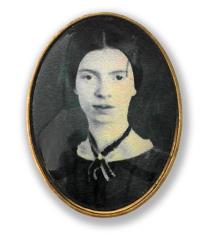
A Book
There is no frigate like a book
To take us lands away,
Nor any coursers like a page
Of prancing poetry.
This traverse may the poorest take
Without oppress of toll;
How frugal is the chariot
That bears a human soul!
Emily Dickinson
(1830-1886)
A Book
• fleursdumal.nl magazine
More in: - Book Stories, Archive C-D, Archive C-D, Dickinson, Emily
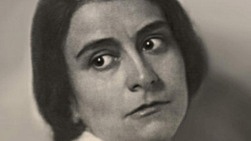
Von weit
Dein Herz ist wie die Nacht so hell,
Ich kann es sehn
– Du denkst an mich – es bleiben alle Sterne stehn.
Und wie der Mond von Gold dein Leib
Dahin so schnell
Von weit er scheint.
Else Lasker-Schüler
(1869 – 1945)
Von weit
• fleursdumal.nl magazine
More in: Archive K-L, Archive K-L, Lasker-Schüler, Else
Thank you for reading Fleurs du Mal - magazine for art & literature